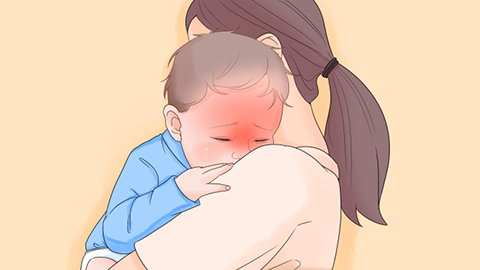What causes convulsions with low fever in children, and what should be done?
Generally, low-grade fever refers to a mild fever. Convulsions caused by low-grade fever in children may be due to electrolyte imbalance, excessive fatigue, upper respiratory tract infection, epilepsy, encephalitis, or other causes. It is recommended to seek timely medical attention, and under a doctor's guidance, adopt general treatments or medication treatments. Detailed explanations are as follows:

1. Electrolyte Imbalance
When children have a fever, sweating and reduced food intake may lead to electrolyte imbalance in the body, which can affect normal nerve and muscle functions and trigger convulsions. It is important to ensure adequate hydration for children, especially during fever, and maintain a balanced diet to ensure proper electrolyte intake.
2. Excessive Fatigue
Disease can weaken a child's physical condition. If the child plays or engages in excessive physical activity during illness, it may lead to physical fatigue and increased nervous system excitability, thus causing convulsions. It is recommended to ensure sufficient rest and sleep for the child, and reduce physical activity during illness to avoid overexertion.
3. Upper Respiratory Tract Infection
Upper respiratory tract infections may be caused by viral or bacterial infections, leading to fever and subsequent convulsions. Symptoms may include coughing, runny nose, and sore throat. Under a doctor's guidance, medications such as Pediatric Paracetamol, Chlorpheniramine, and Noscapine Granules, Ribavirin Granules, Amoxicillin and Clavulanate Potassium for Suspension may be used for treatment.
4. Epilepsy
Epilepsy is caused by abnormal discharges of brain neurons, which may be triggered by genetic factors, brain injuries, or metabolic abnormalities. Convulsions during low-grade fever may be induced by fever triggering an epileptic episode. Symptoms may also include loss of consciousness and foaming at the mouth. Under a doctor's guidance, medications such as Sodium Valproate Oral Solution, Carbamazepine Tablets, and Diazepam Injection may be used for treatment.
5. Encephalitis
Encephalitis is caused by pathogens such as viruses, bacteria, or fungi infecting the brain tissue. The pathogens may invade the cerebral cortex, causing abnormal neuronal discharges, leading to convulsions even with a low-grade fever. Symptoms may also include headache and vomiting. Patients may follow medical instructions to use medications such as Acyclovir Injection, Ceftriaxone Sodium for Injection, and Mannitol Injection for treatment.
In daily life, attention should be paid to keeping the child warm and avoiding sudden temperature changes, ensuring adequate hydration and nutritional intake. During illness, physical activity should be appropriately reduced to prevent excessive fatigue.








